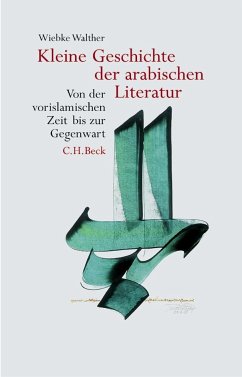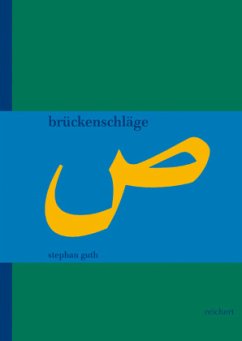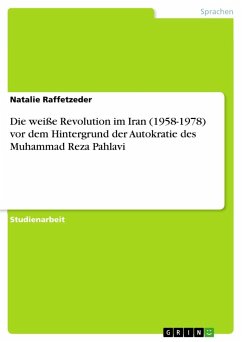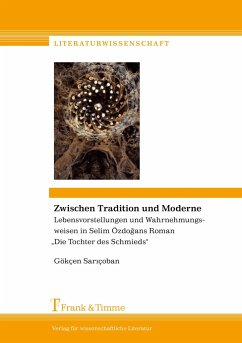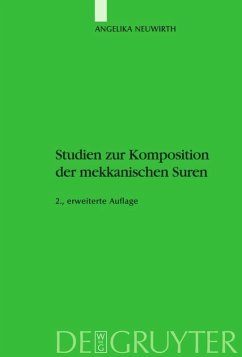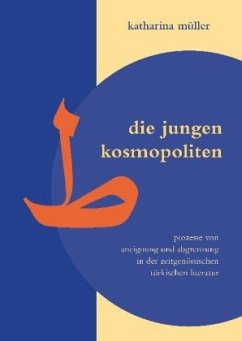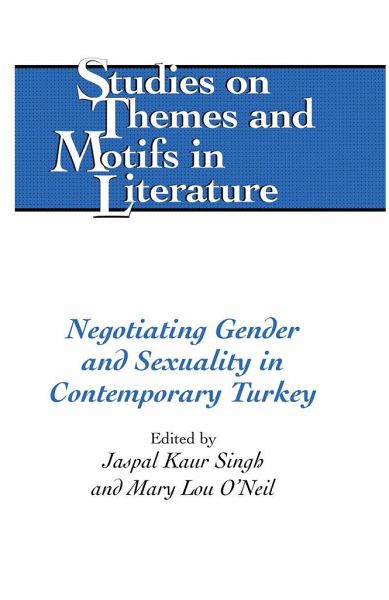
Negotiating Gender and Sexuality in Contemporary Turkey
Versandkostenfrei!
Versandfertig in 1-2 Wochen
80,20 €
inkl. MwSt.

PAYBACK Punkte
0 °P sammeln!
Turkey is often visualized as a modern nation-state having a perfect balance of Eastern and Western cultural mores and traditions within dominant ideological constructions and representations, but on closer inspection, one can detect conflicts and contradictions within various texts - particularly in regards to depictions of gender and sexual identity. Upon its foundation as a nation, Turkey embarked on a state-centered, elite-driven path toward modernization and Westernization while also seeking to produce a monolithic culture. At the time, it was widely believed that Turkey could not rank am...
Turkey is often visualized as a modern nation-state having a perfect balance of Eastern and Western cultural mores and traditions within dominant ideological constructions and representations, but on closer inspection, one can detect conflicts and contradictions within various texts - particularly in regards to depictions of gender and sexual identity.
Upon its foundation as a nation, Turkey embarked on a state-centered, elite-driven path toward modernization and Westernization while also seeking to produce a monolithic culture. At the time, it was widely believed that Turkey could not rank among modern, Western countries without the emancipation of women. As a result of the founding of the Republic and Turkey's quest for a unified culture, women were granted a number of legal rights and enjoined to take up their place in the public sphere.
In recent years, this model of state-centered secular modernity and state feminism has come under intense scrutiny and criticism as Islamists, Kurds, feminists, and others demand their claims for recognition and force a rethinking of current understandings of Turkish identity and subjectivity, specifically regarding gender and the place and role of women in society. These controversies, contradictions, and ambiguities are reflected in women's lives and are waged by various factions over women's bodies within ideological constructions of identity and this study seeks to examine these disjunctures and contradictions as reflected in modern Turkish literature and culture.
Negotiating Gender and Sexuality in Contemporary Turkey is an essential tool for scholars and students of Middle Eastern literature, Turkish literature and culture, gender and sexuality studies, modern and postmodern literature, postcolonial and feminist literature and studies, cultural studies, religious studies, and women's studies and seeks to place a microscopic view on a marginalized and embattled group.
Upon its foundation as a nation, Turkey embarked on a state-centered, elite-driven path toward modernization and Westernization while also seeking to produce a monolithic culture. At the time, it was widely believed that Turkey could not rank among modern, Western countries without the emancipation of women. As a result of the founding of the Republic and Turkey's quest for a unified culture, women were granted a number of legal rights and enjoined to take up their place in the public sphere.
In recent years, this model of state-centered secular modernity and state feminism has come under intense scrutiny and criticism as Islamists, Kurds, feminists, and others demand their claims for recognition and force a rethinking of current understandings of Turkish identity and subjectivity, specifically regarding gender and the place and role of women in society. These controversies, contradictions, and ambiguities are reflected in women's lives and are waged by various factions over women's bodies within ideological constructions of identity and this study seeks to examine these disjunctures and contradictions as reflected in modern Turkish literature and culture.
Negotiating Gender and Sexuality in Contemporary Turkey is an essential tool for scholars and students of Middle Eastern literature, Turkish literature and culture, gender and sexuality studies, modern and postmodern literature, postcolonial and feminist literature and studies, cultural studies, religious studies, and women's studies and seeks to place a microscopic view on a marginalized and embattled group.







